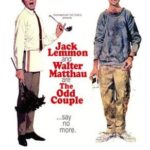
NOW BRACE yourself, because this could come as quite a SHOCK… or even a disappointment! But, here goes: Not everything is about sex. Seriously. Even comedy, isn’t always about sex.
Sure, now it is, more or less, but it is a recent development (the last 10-15 years) to be primarily sexually focused, homosexually, or otherwise. Comedy Duos go well back to the 19TH CENTURY! Bert and Ernie harken back to another time, of silliness. Playfulness. Non sexually-laden silliness. It is not understood or appreicated.
“Known historically as a “Comedy Duo” or Double Act Comedy” this art form is when one of the duo members, the straight man, feed, dead wood, or stooge is portrayed as reasonable and serious, and the other one, the funny man or comic is portrayed as funny, less educated or less intelligent, silly, or unorthodox.” (This paragraph was a wiki-source, read the rest here. It’ll be enlightening.)
This comedic tradition, of 1o0 years or more, seems utterly lost on our culture, the recent puppet debacle indicates this. Yes, 2011 PuppetGate. I’ve seen nothing this childish (in a bad way) since the Purple, purse-toting Teletubbie was outed. Remember “Tinky Winky” any one?

Sadly, Megan’s Law sidelined his/her career. Responding to almost 1,000 petitions to wed Bert and Ernie, Sesame Street Workshop issued this statement:
“Bert and Ernie are best friends. They were created to teach preschoolers that people can be good friends with those who are very different from themselves. Even though they are identified as male characters and possess many human traits and characteristics (as most Sesame Street Muppets™ do), they remain puppets, and do not have a sexual orientation.”
Bert and Ernie actually sound patterned after The Odd Couple, which was on Broadway, a film, and later a TV series that ran during the time Sesame Street was created. Two roommates who are different. A situation comedy.

The whole thing was probably just a prank gone wild, oh… no, wait, it probably wasn’t. It was probably stupidity and cultural amnesia.
The fixation on sexuality (generally) and homosexuality (particularly) is really getting pointless, culturally speaking. Ya know? Do people really think pre-school television shows are, or should be sexualized? What is this odd cultural projection to force it into every scenario? How bizarre. With this tact…why just pick on Bert and Ernie, shouldn’t Winnie the Pooh and Piglet be probed too? …ya know… so to speak.
On just a quick examination of America’s (and Britain’s) comedic traditions, we find that sexual acts were not the main point or agenda of comedy duos.
The cultural tone started to shift in the 1970s. Or perhaps it was when ego-centric, cultural amnesia started to be the norm.
Cindy Williams (who played the character Shirley) mentioned in an interview that the producers of Laverne and Shirley, had the characters date, and marry male characters, because the idea of two women rooming together for years, was causing speculation about the characters.
Now, I suppose it is the expectation, or the foregone conclusion that same sex friends who are roommates are also homosexual. Am I the only who finds this pitiful?
Comments? Thoughts?

















